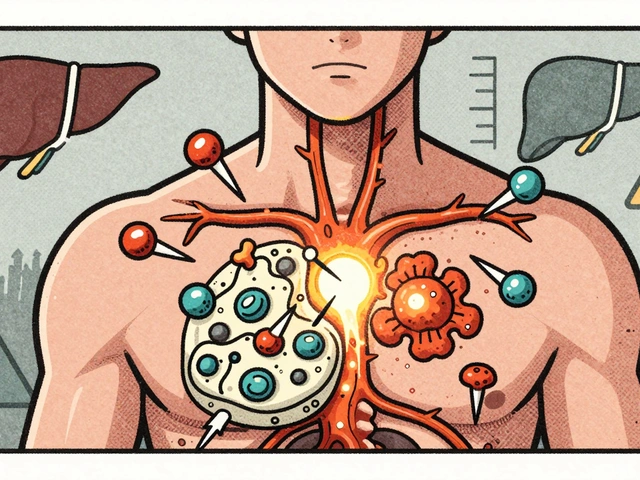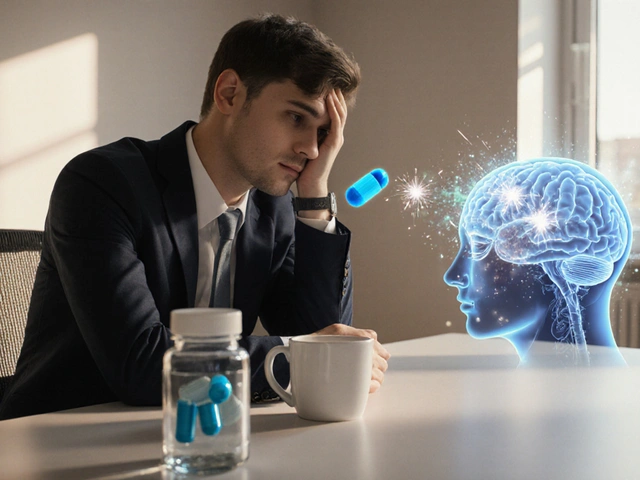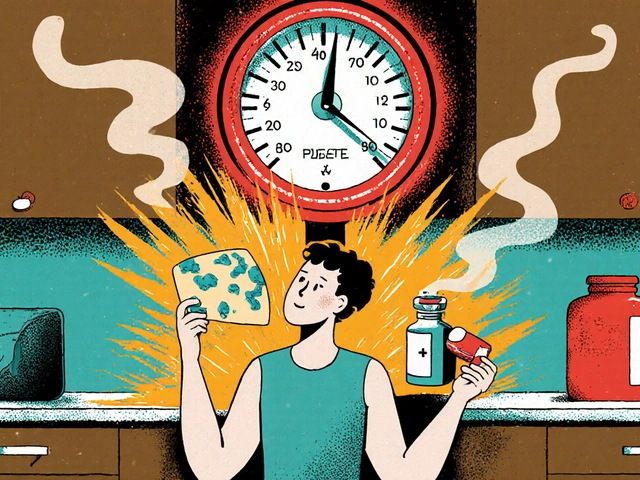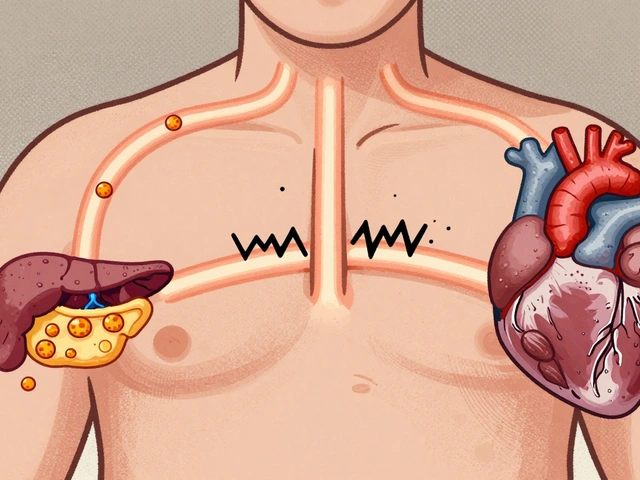Graves' Disease: Causes, Symptoms, and How It Affects Your Thyroid and Overall Health
When your immune system mistakenly attacks your thyroid, a small butterfly-shaped gland in your neck that controls metabolism. Also known as toxic diffuse goiter, it's the most common cause of hyperthyroidism—when your thyroid makes too much hormone. This isn’t just about feeling jittery or losing weight fast. Graves’ disease can mess with your heart, muscles, eyes, and even your mood for years if left unchecked.
What makes it different from other thyroid problems? It’s autoimmune. Your body produces antibodies—called TSH receptor antibodies, proteins that trick your thyroid into overproducing hormones—that act like fake keys, forcing your thyroid to keep producing. This isn’t something you catch from someone else. It runs in families, hits women more than men, and often shows up between ages 30 and 50. Smoking doesn’t cause it, but it makes one of its worst side effects, thyroid eye disease, a condition where the tissue behind the eyes swells, causing bulging, pain, and vision issues, much worse.
People with Graves’ disease don’t just feel tired—they feel wired. Heart racing. Hands shaking. Sweating when it’s cold. Losing weight even when eating more. Some notice their eyes staring out more than usual. Others get thick, red skin on their shins. These aren’t random symptoms. They’re direct results of too much thyroid hormone flooding your system. And because the thyroid affects everything from your energy to your digestion to your menstrual cycle, the ripple effects are wide.
Doctors diagnose it with blood tests that check TSH, T3, T4, and those specific antibodies. An ultrasound or radioactive iodine scan might follow to confirm the picture. Treatment isn’t one-size-fits-all. Some take anti-thyroid pills to calm things down. Others get radioactive iodine to shut down part of the gland. A few end up needing surgery. Each choice has trade-offs—medication might work for years, but relapse is common. Radioactive iodine often leads to lifelong hypothyroidism, which means daily pills forever. Surgery carries risks but can be definitive.
What’s missing from most discussions is how lifestyle and other conditions play in. If you have Graves’ disease, you’re more likely to have other autoimmune issues—like type 1 diabetes or rheumatoid arthritis. Stress doesn’t cause it, but it can trigger flare-ups. And while no diet cures it, cutting back on iodine-rich foods like seaweed or kelp can help some people manage symptoms. If you’re on treatment, you need regular blood tests. Too little medication? Symptoms come back. Too much? You end up with hypothyroidism instead.
Below, you’ll find real, practical guides on how this condition connects to other health issues you might not expect—like how it interacts with medications, what happens when you smoke, how it affects your heart, and what to watch for if you’re also dealing with something like lupus or diabetes. These aren’t theoretical articles. They’re written for people living with this, trying to make sense of it all without getting lost in medical jargon.
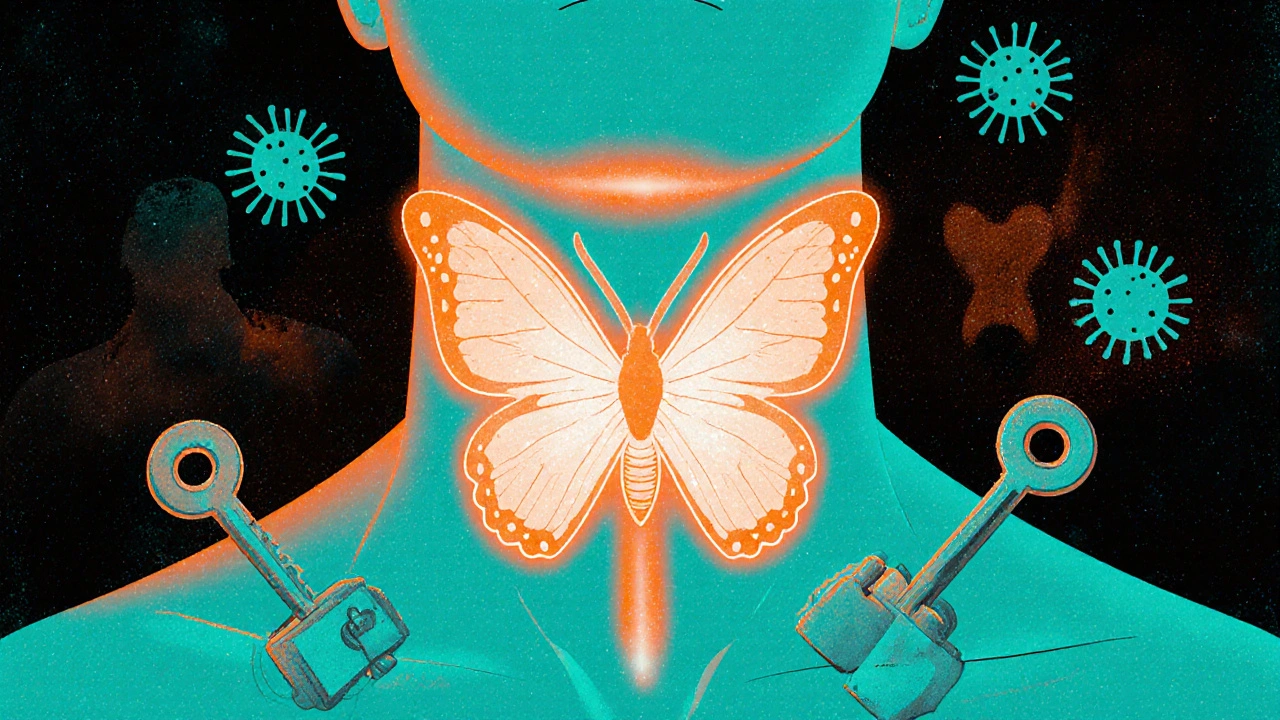
- Nov 16, 2025
- Posted by Cillian Osterfield
Graves' Disease: Understanding Autoimmune Hyperthyroidism and PTU Treatment
Graves' disease is an autoimmune disorder causing hyperthyroidism, often treated with PTU, especially during early pregnancy. Learn how it works, its risks, alternatives, and what to expect during treatment.
Categories
- Health and Wellness (72)
- Medications (69)
- Health and Medicine (28)
- Pharmacy Services (12)
- Mental Health (9)
- Health and Career (2)
- Medical Research (2)
- Business and Finance (2)
- Health Information (2)
Latest Posts
©2026 heydoctor.su. All rights reserved

